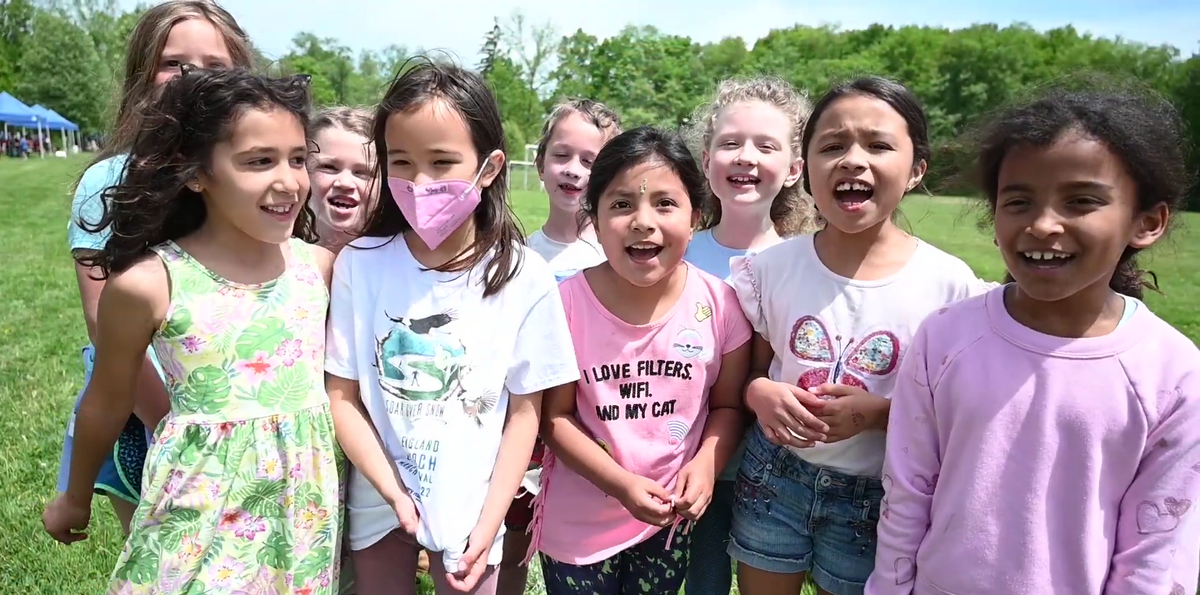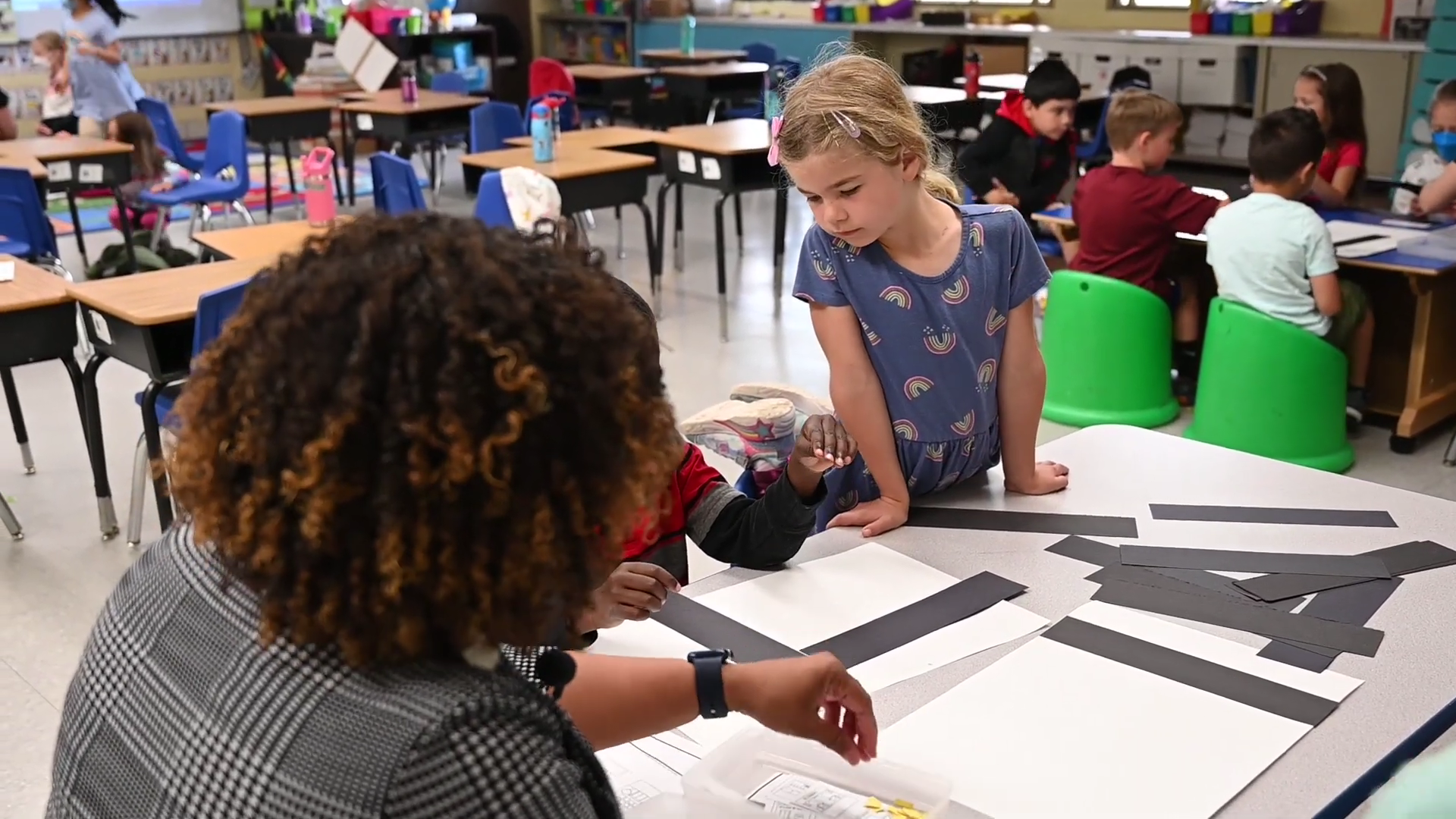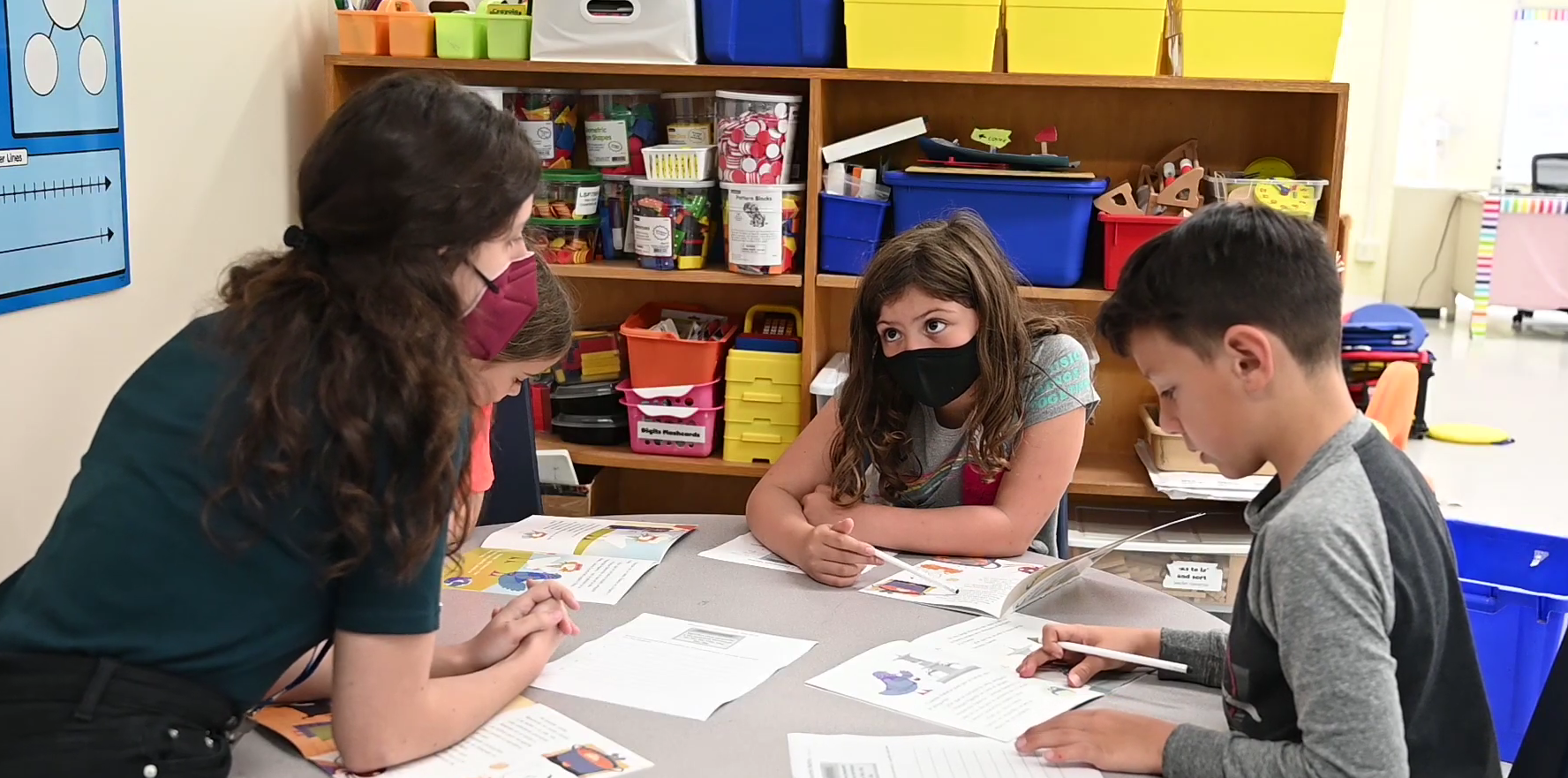Spanish Dual-Immersion Program Continues on Path Despite Losing Grant
Amherst’s successful dual immersion program, Caminantes, has lost an important state grant. Five years after its founding, Caminantes has improved students’ proficiency in both Spanish and English and increased pride in their heritage.

A banner at the entrance of Fort River Elementary School’s Spanish immersion program reads: “Caminantes. El camino al bilinguismo comienza aqui. The path to bilingualism starts here.”
Starting in 2019 with its inaugural kindergarten class, the program has helped students increase their proficiency in Spanish and English and develop pride in their heritage.
The program uses district funding to add a grade level each year and aid staff. It also has used around $500,000 annually in state grants to provide curriculum materials, professional development, the Seal of Biliteracy framework, summer programs, and family engagement, according to Katie Richardson, the district’s multilingual educator. This year, Amherst schools failed to secure the grant.
Because of Caminantes’ positive impact, losing the grant meant that there was a pervasive fear from parents and community members that the program would close. Although that is not the case, Caminantes is still searching for sustainable funding.
“There’s sort of a sensational headline about losing the funding and while that’s true, and it matters, it doesn’t mean the program has no funding to begin with,” Richardson said. “[The grant] has funded a lot of really important stuff, but it’s important to know that the foundation has been there.”
It’s possible that Amherst schools didn’t receive the grant for two reasons: the state wanted to prioritize districts that hadn’t received it in the past, and they widened the pool of applicants.
Rather than offering up the grant to dual-immersion schools, it was extended to districts with ESL programs. Grant requests rose to $9 million, and only $2.5 million were available for distribution, Richardson said.
Daniela Narvaez Burbano, lecturer in Spanish at the college, also works as an intern for the Seal of Biliteracy for K-12 students in Amherst public schools, helping students receive a certificate recognizing them as bilingual in four skills.
“The community is really attentive to these multilingual efforts. They want to participate,” Narvaez Burbano said. “Spanish is the second most spoken language in the United States. It’s ridiculous that we don’t have more schools having this opportunity for both sides, for English speakers that want to learn Spanish and vice versa, for Spanish speakers that don’t want to lose their language.”

Kobe Thompson ’24 volunteered at a multicultural heritage month event with Narvaez Burbano, which he said was “very beautiful and sincere.”
“What’s important here is that we are getting these kids to appreciate a larger world out there, with a lot of people that they are sharing this small little town of Amherst with,” he added.
The Spanish department’s senior seminar also provides an opportunity for students to engage with the local Spanish-speaking community. For the past three years, students have spent a semester in Caminantes’ classrooms.
“Caminantes is a really, really great community partner. They are deeply committed to the families in this community,” said Zoe Jacobs Feinstein, associate director of community-engaged learning. “It’s exciting for me to see that they are continuing to do that work, and how committed they are to making that happen.”
Professor of Spanish Catherine Infante has a seven-year-old son in first grade at the elementary school who has gained more confidence in his Spanish background through Caminantes.
“We speak Spanish at my home, but it wasn’t until my child started Caminantes that he could celebrate the language and that part of his identity,” said Infante, who has also taught the senior seminar. “It’s been a really positive experience for him and for our family to have this opportunity to not just learn Spanish but learn about other Spanish-speaking cultures and connect with kids with different backgrounds.”

Instead of implementing a subtractive bilingual model where students come to school and they are taught to forget their native language in favor of learning English, Caminantes supports students by saying “your language is really valuable,” Richardson said.
Infante really valued Caminantes’ summer program for her son as a way to maintain language skills despite not being in school full-time. Since the grant funded the summer program, an idea is for families to pay, if they can, to continue it, Richardson said. Volunteer college students could also help alleviate costs.
Another possibility is having the colleges help with transportation, as they have in the past. Bussing is a main challenge that Caminantes hopes to address. For example, Infante’s son is zoned for Crocker Farm, so he has to take the bus there first, then take a transfer bus to get to Fort River. Students like Infante’s son get to school late and leave class early for bus rides as long as 45 minutes.
Other than bussing, the program hopes to continue to recruit and retain Spanish-speaking teachers for all positions. As a result, it is vital to maintain a continued investment in Caminantes, particularly as it expands to the middle school and as a new elementary school is being built, Richardson said.
“English is still the water that we’re swimming in, and we have to continue elevating the Spanish,” Richardson said. “But we’ve come a long way in developing a multilingual mindset.”





Comments ()